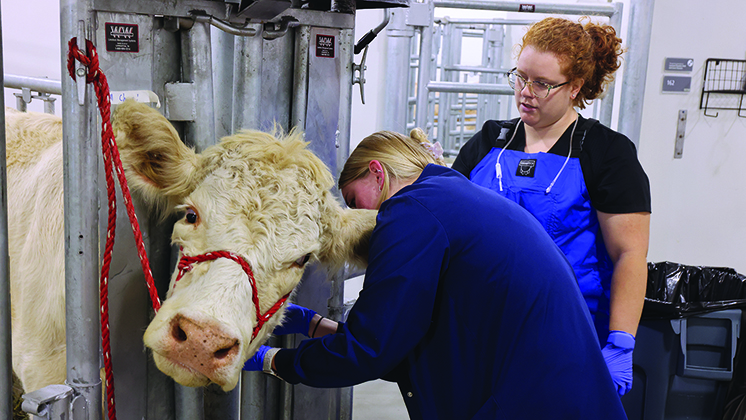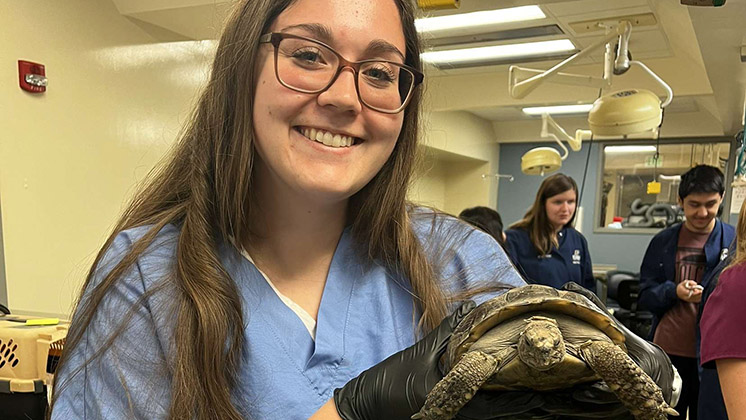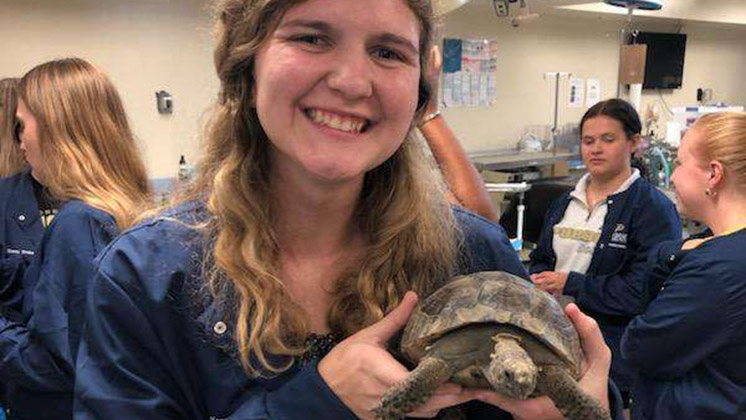
by Josh L. Clark, MS, RVT
If you have a passion for helping animals and are considering a career in veterinary medicine, you may have heard about the role of a veterinary technician, often referred to as a vet tech or a vet nurse.. So, what does a vet tech do? Vet techs are crucial members of the veterinary team, and help support veterinarians by carrying out a wide range of hand-on tasks. Along with clinical skills, being a vet tech also requires other skills such as empathy, critical thinking, problem solving, and communication skills.
Vet techs are often compared to human nurses because one of their primary responsibilities is providing nursing care for patients. This can include completing tasks such as feeding and grooming, monitoring a patient’s condition, sample collection, and administering medication under a veterinarian's supervision.
However, vet techs also perform many other tasks that are not necessarily related to providing nursing care for patients. Vet techs perform diagnostic laboratory tests such as complete blood counts and urinalyses, produce radiographs, perform diagnostic dental cleanings, assist in medical procedures, monitor anesthesia, and provide post-operative care.
While some people decide to become a vet tech because they like interacting with animals, communicating with clients is also a large part of being a vet tech. Vet techs often communicate with pet owners, explaining the pet's condition, care instructions, or treatment procedures. They also provide information on topics such as nutrition, behavior, and preventative care.
It is not uncommon for vet techs to be involved in carrying out administrative duties within a veterinary practice. They may maintain patient records, manage drug and supply inventory, and provide routine maintenance and upkeep of equipment used in the hospital. Vet techs can also be involved in a practice’s marketing efforts by fostering client relationships via various social media platforms.
Vet techs can legally perform almost any task at a veterinary practice other than diagnosing, prognosing, prescribing, and performing surgery. However, the duties of a vet tech can vary quite a bit depending on the type of practice setting in which they work and on how the practice chooses to delegate duties. Job duties can be quite different in small animal practices when compared to the tasks a vet tech performs when working with large animals such as , cows and horses. Some practices choose to delegate veterinary assistant and/or receptionist duties to vet techs, so it is important to ask questions about how vet techs are utilized at a practice when interviewing for jobs.
Vet tech jobs are vital to the operation of a veterinary practice and can vary based on the type of practice and the way in which a practice chooses to delegate tasks. They provide essential care to animals, assist veterinarians in medical procedures, educate pet owners, and handle administrative tasks. If you have a passion for working with and helping animals and their owners, becoming a vet tech could be a rewarding career path.
Learn more about Purdue’s traditional on-campus program and flexible distance learning program.
Find your calling as a Purdue Veterinary Nurse!
Not quite ready to apply? Connect with us to learn more.

Explore essential factors like accreditation, curriculum, clinical experience, VTNE pass rates, cost, and program format to choose the best vet tech program for a successful career.
Read more
Learn about the differences and similarities between a veterinary technician (vet tech), veterinary technologist, and veterinary nurse.
Read more
Communication, empathy, and teamwork skills for veterinary technicians are essential. Excellence in animal care also demands strong interpersonal abilities.
Read more